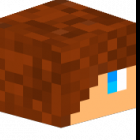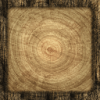- Sky
- Blueberry
- Slate
- Blackcurrant
- Watermelon
- Strawberry
- Orange
- Banana
- Apple
- Emerald
- Chocolate
- Charcoal
-
Content Count
35 -
Joined
-
Last visited
-
Days Won
18
Totoro last won the day on February 6 2020
Totoro had the most liked content!
About Totoro
-
Rank
Junior Member
Contact Methods
-
Minecraft
Totoro
-
GitHub
MoonlightOwl
Recent Profile Visitors
3221 profile views
-
CSS style for avatar is a little bit off: The reason is that the avatar box is 26 pixels in size, but the CSS dictates a different value: When disabling the "height: 34px" line - everything starts to work as it is supposed to.
-
 Totoro reacted to a post in a topic:
Platformer game on OpenComputers
Totoro reacted to a post in a topic:
Platformer game on OpenComputers
-
 Totoro reacted to a post in a topic:
IRC library
Totoro reacted to a post in a topic:
IRC library
-
 Log reacted to a post in a topic:
Stem - easy internet bridge
Log reacted to a post in a topic:
Stem - easy internet bridge
-
 JackCarterSmith reacted to a post in a topic:
Stem - easy internet bridge
JackCarterSmith reacted to a post in a topic:
Stem - easy internet bridge
-
 Totoro reacted to a post in a topic:
realtime - Real world time in OpenComputers
Totoro reacted to a post in a topic:
realtime - Real world time in OpenComputers
-
 Totoro reacted to a post in a topic:
[WIP] TritonLang - A C++-styled language that compiles to Lua [Continuation of KLang]
Totoro reacted to a post in a topic:
[WIP] TritonLang - A C++-styled language that compiles to Lua [Continuation of KLang]
-
 Totoro reacted to a post in a topic:
OpenSolidState
Totoro reacted to a post in a topic:
OpenSolidState
-
 Fingercomp reacted to a post in a topic:
Stem - easy internet bridge
Fingercomp reacted to a post in a topic:
Stem - easy internet bridge
-
 CptMercury reacted to a post in a topic:
Stem - easy internet bridge
CptMercury reacted to a post in a topic:
Stem - easy internet bridge
-
 BrightYC reacted to a post in a topic:
Stem - easy internet bridge
BrightYC reacted to a post in a topic:
Stem - easy internet bridge
-
 Molinko reacted to a post in a topic:
Stem - easy internet bridge
Molinko reacted to a post in a topic:
Stem - easy internet bridge
-
What is STEM? Did you ever want to have a linked card, but without this pair-to-pair limitations? Well, you have internet card. And that is already half of the solution. The other half is to use Stem. Stem is a message transmitter for your OpenComputers devices with internet cards. Using a small OpenOS library you can use Stem to send and receive messages. Unlike the standard `modem` component, Stem-messaging uses not addresses, but `channels`. You can send messages to any channels, and you can subscribe to any number of channels to listen for messages from them.
-
 Totoro reacted to a post in a topic:
OCDevices (FlatPanel, Cases and external CardDock)
Totoro reacted to a post in a topic:
OCDevices (FlatPanel, Cases and external CardDock)
-
 Totoro reacted to a post in a topic:
BloodCtrl v0.1 - Automated Blood Magic slate creation
Totoro reacted to a post in a topic:
BloodCtrl v0.1 - Automated Blood Magic slate creation
-
 Totoro reacted to an answer to a question:
Are there any tutorials or doumentations for plan9k OS?
Totoro reacted to an answer to a question:
Are there any tutorials or doumentations for plan9k OS?
-
 Totoro reacted to a post in a topic:
Bundle - allows to use multiple filesystems as a single one
Totoro reacted to a post in a topic:
Bundle - allows to use multiple filesystems as a single one
-
Really handy and neat looking tool. Took it for one of my projects (with the license included, of course).
-
 Totoro reacted to a post in a topic:
Cell - A graphical file manager for OpenComputers
Totoro reacted to a post in a topic:
Cell - A graphical file manager for OpenComputers
-
Hello Doggle. The projector need to be connected to the computer (where the editor is running) with a cable. The cable can be connected to the computer from any side, and to the projector only from the bottom side. You can check a list of components available for the computer by entering an OpenOS command: components If the resulting output will contain any string with a word `hologram` in it - there you are. Unfortunately, this editor models are not compatible with the 3D printer. To create 3D models for the printer with some comfort you can use some external
-
I don't think this is very practical way to hunt players Because robots are pretty slow compared to players, and can turn only on right angles, and strike only in front of itself, and can easily be trapped by blocks or even be broken and picked up by the `target` player.
-
Use buttons[name].rect or buttons[name]["rect"] In your current edition Lua thinks `rect` is local variable, which obviously equals `nil`. And `buttons[name][nil]` is nil too.
-

Formatting / aligning text and objects on screen.
Totoro replied to TheREALtigR's question in Programming
You can use GPU component to get current screen resolution and use gpu.set() to center text on the screen. For example: local com = require('component') local gpu = com.gpu local width, height = gpu.getResolution() local text = "Some info to be centered" gpu.set(width / 2 - #text / 2, height / 2, text) -
I agree with Gorzoid. gpu.bind will do it. You can get screen address from `touch` event every time someone clicks the button somewhere, then bind to that screen and render animations etc.
-
Yeah, quite reasonable feature, i think. I will add it to the next version sometime soon. =)
-
I tracked down these bugs and fixed them. Also refactored source codes a bit (particularly textbox widget) Try the new version, please: Hologram Editor 0.7.1-en Hologram Viewer 0.7.1-en
-
Totoro changed their profile photo
-
Wow. That's a nice bunch of bugs I'll look at the code and try to fix them this evening. Thank you for the screens!
-
0.7 version includes a few improvements, but yeah, it pretty much does the same. =) How do you specify the path to you model? `show` util is purely console, and basically it can be used like this: show yourfile You can try to use full path (/home/yourmodel) or relative (./yourmodel). Also it is worth mentioning, that in last version (0.7.0) saved hologram files have a new (effectively compressed) format `*.3dx`. Pay attention to file extension, when spelling file name. UPD. I have updated the first post, and added new editor version (0.7.0) with English locali
-
This is my old attempt to create holographic map. Like in sci-fi movies. Debug card (or AMI block from Immibis's Peripherals) scanned the map, and collected the data. A grid of projectors under the floor was responsible for rendering. The color of any map point depends on it altitude. Thank you!
-

hallo i don't now how to make a post so i will do it here i -- event.pull problem
Totoro replied to Ta©ti Tac0Z's question in Programming
Have you imported the `event` library (local event = require('event'))? Source code on Pastebin may be helpful, yep =) UPD. And you seem to override the `event` variable in the line: event, p2, x, y, p5, input = event.pull(..)






